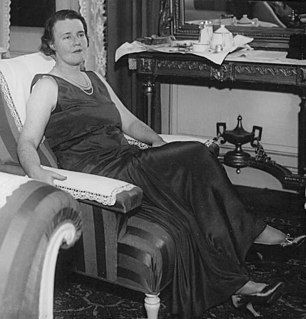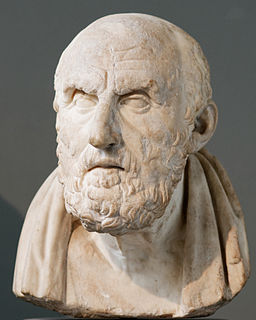A Quote by William Shakespeare
There are occasions and causes, why and wherefore in all things.
Quote Topics
Related Quotes
[Necessity is] the sum of all things, which being now existent, conduce and concur to the production of that action hereafter, whereof if any one thing now were wanting, the effect could not be produced. This concourse of causes, whereof every one is determined to be such as it is by a like concourse of former causes, may well be called (in respect they were all set and ordered by the eternal causes of all things, God Almighty) the decree of God.





































